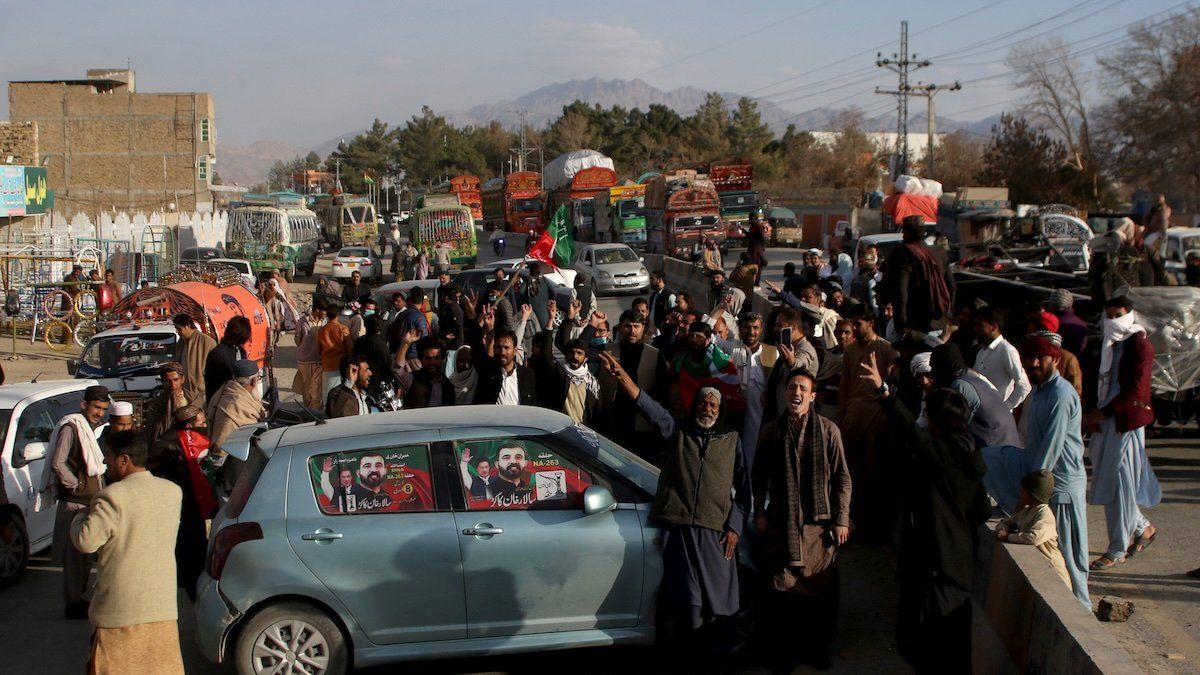Thousands of supporters of imprisoned former Prime Minister Imran Khan took to the streets and blocked highways in southwestern Pakistan on Monday to protest the results of last week’s chaotic election.
Pakistan faces an uncertain future given no party won a majority, and both Khan and his rival, Nawaz Sharif, have declared victory. Though independents primarily aligned with Khan won the most seats (101), there’s no viable path for them to form a governing coalition due to their lack of party affiliation. They ran as independents after being blocked from using his party’s symbol, a cricket bat, as an electoral image to help illiterate voters find them on ballots.
“The military-dominated Pakistani establishment is working to cobble together a coalition of mainstream parties that will be led by Nawaz Sharif's Pakistani Muslim League, with Bilawal Bhutto-Zardari’s Pakistan People's Party and the Muttahida Qaumi Movement likely serving as junior partners,” says Eurasia Group analyst Rahul Bhatia.
“Given the influence of the establishment in Pakistan,” candidates backed by Khan’s Pakistan Tehreek-e-Insaf party “will almost certainly be kept out of power,” adds Bhatia, though some “are also likely to join the coalition parties.”
Still, the unexpected success of Khan’s independents marks a serious rebuke of the country’s powerful military, which has long played an outsized role in Pakistan’s politics. The fact that Khan’s supporters are protesting despite the military’s crackdown on his party “shows that many Pakistanis are no longer afraid of the establishment,” says Bhatia, and it indicates the army’s power is “gradually eroding.”
“While Pakistan will likely see widespread protests once the new government is announced, the military should be able to handle them,” says Bhatia.
